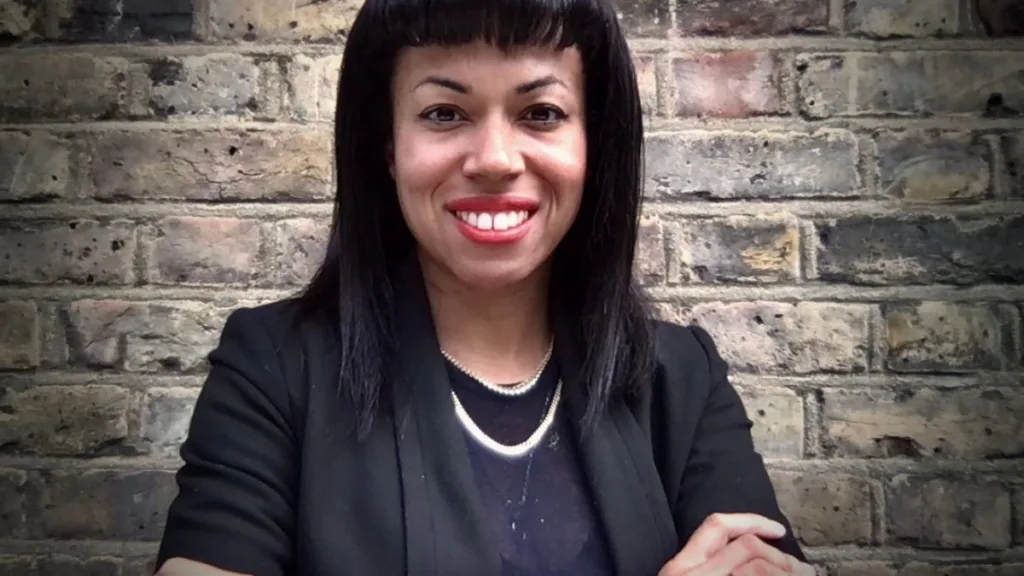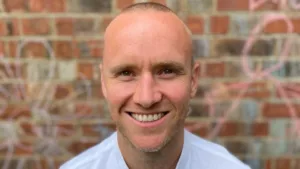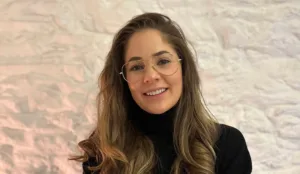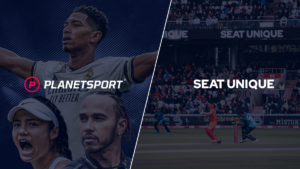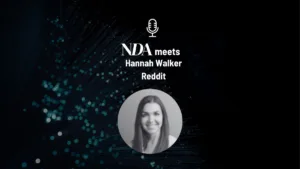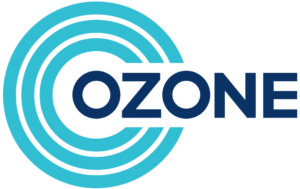Angie Gola-Ebue is Global Head of Advertising and Partnerships, Her. With over 20 years’ industry experience. In 2016, she helped create the first global advertising department for Tinder. Following her tenure as a commercial lead at VICE Media, Tinder/Match Group, Angie took on a leadership role at HER, the award-winning and world’s largest dating and social platform for queer women, trans, and non-binary people. In addition to her work at HER, Angie is the Founder of Intermediary, a commercial representation and consultancy company that helps expand the reach of sales, business development, and marketing teams worldwide.
What is the biggest challenge for members of the LGBTQIA+ community in the digital industry and how is it being overcome?
As a Black queer person working in the digital industry, I know one of the biggest challenges faced is being involved in digital campaigns that don’t represent who we are, from creative execution to the media platforms being utilised. When we are asked to work on campaigns that don’t authentically represent the LGBTQIA+ community, it can create a conflict of values and a sense of disconnect from our own work.
This lack of representation can be disheartening and frustrating, as we chose to work in digital media with the aspiration to innovate and build on society and culture, hoping to see our lives and experiences reflected in the work we produce.
As digital professionals, we want to create meaningful and impactful campaigns that resonate with diverse audiences, including those who identify as LGBTQIA+. Being involved in campaigns that perpetuate stereotypes, erase our identities, or simply overlook our existence can feel like a missed opportunity to contribute to positive change and foster inclusivity.
As far as how this is being overcome, I think there is a lot of wider conversation, analysis and industry interest groups being developed for just this reason. LGBTQIA+ folks in the industry have options and resources outside of their employer to have these important conversations and feel supported.
What three things could employer companies do to make the digital industry better for the LGBTQIA+ community?
Diverse and inclusive creative teams: Companies should be striving to have diverse creative teams to create a complex and rich culture of backgrounds, experiences, ideas and representation. We all know what happens when everyone at the table looks the same – the work is just not as good, the culture suffers and people feel “othered.” By having LGBTQIA+ professionals involved in the ideation and execution of campaigns, the resulting work is more likely to be authentic and resonate with diverse audiences.
Empower employee input: Employers should actively encourage employees to provide input and feedback on campaigns to ensure they are inclusive and representative. Creating an environment where employees feel comfortable voicing their opinions fosters collaboration and leads to more thoughtfully designed campaigns.
Partner with LGBTQIA+ organizations: Companies can collaborate with LGBTQIA+ organizations and influencers to ensure campaigns accurately represent the community’s experiences and aspirations. Partnering with these groups brings valuable insights and authenticity to the work, strengthening its impact and relevance. BUT be prepared to do the work – we all saw what happened this year with Bud Light. You can’t just activate a queer influencer and leave them hanging if online sentiment goes sideways.
What impact can a more inclusive approach to LBTQ+ communities in our industry have on society as a whole?
When the digital industry adopts a more inclusive approach that genuinely reflects the lives and experiences of LGBTQIA+ individuals, the impact on society as a whole can be transformative:
Empowerment and visibility: Authentic representation in digital media empowers LGBTQIA+ individuals and validates their identities. When we see our lives reflected in campaigns, it fosters a sense of visibility, recognition, and acceptance.
Challenging stereotypes and prejudices: By presenting diverse and positive portrayals of LGBTQIA+ individuals, these campaigns can promote understanding and empathy, leading to broader societal change. Plus working on inclusive campaigns have the power to challenge harmful stereotypes and prejudices that exist in society.
Cultural shift and acceptance: The digital industry can act as a role model for other sectors by amplifying the benefits of inclusivity. By showcasing the positive outcomes of diversity, we inspire other industries to prioritize inclusivity, creating a ripple effect of positive change. Inclusive digital campaigns contribute to cultural shifts in attitudes toward the LGBTQIA+ community. As more people are exposed to diverse and respectful representations, it fosters a more accepting and inclusive society.
What support structures and organizations are most important and effective to the LGBTQIA+ community in the digital industry?
LGBTQIA+ Employee Resource Groups (ERGs): ERGs play a crucial role in providing a sense of belonging and support within companies. They serve as a platform for advocating for our rights and needs, making our voices heard within the organisation.
LGBTQIA+ professional networks: External organisations focused on LGBTQIA+ professionals offer networking opportunities, mentorship programs, and access to valuable resources. These networks connect us with like-minded individuals across the industry and provide guidance in navigating career challenges.
Diversity and inclusion initiatives: Companies that invest in diversity and inclusion initiatives demonstrate a commitment to creating a supportive and equitable workplace. By actively supporting these efforts, we can push for lasting change within our organizations.
How effective are trade bodies, industry awards, and the industry press at supporting and promoting LGBTQIA+ inclusivity?
It varies. Awards that acknowledge the achievements of LGBTQIA+ professionals are great at inspiring others and fostering a sense of pride and belonging. Being recognized for our contributions helps us feel valued and encourages us to continue making a positive impact in the industry in this way.
Trade bodies are amazing and also genuinely advocate for LGBTQIA+ rights and representation within the industry. They can use their influence to promote inclusive policies and push for change among their member companies.
Industry press plays a vital role in raising awareness about LGBTQIA+ representation, challenges, and success stories. By highlighting the progress and setbacks faced by the community, they keep the conversation alive and hold organisations accountable for their actions.
The flip side is that there is a tendency by the media to dwell on the negative, especially when it comes to LGBTQIA+ related industry stories. I think we really saw this during Pride this year. There was so much time spent talking about Target and Bud Light, with very little dedication to shinning a light on good, positive work being done.


